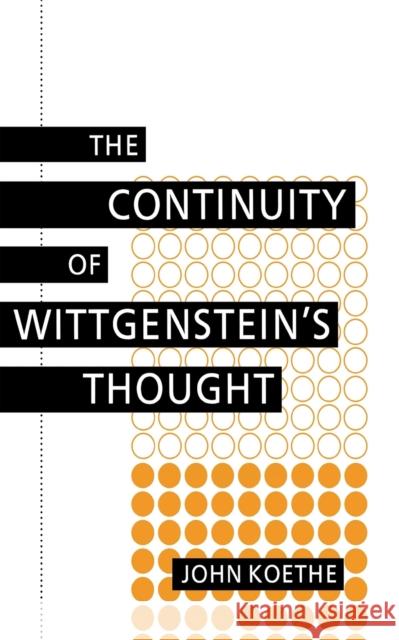Continuity of Wittgenstein's Thought » książka
Continuity of Wittgenstein's Thought
ISBN-13: 9780801433078 / Angielski / Twarda / 1996 / 208 str.
Ludwig Wittgenstein's philosophical work is informed throughout by a particular broad theme: that the semantic and mentalistic attributes of language and human life are shown by verbal and nonverbal conduct, but that they resist incorporation into the domain of the straightforwardly factual. So argues John Koethe, in contrast to the standard view that Wittgenstein's earlier and later philosophical positions are sharply opposed. In making his case for the essential continuity of Wittgenstein's thought, Koethe ranges over the entire corpus of the philosopher's writing, and concludes by pointing out connections between Wittgenstein's views and those of several contemporary philosophers, including Nagel, Dennett, Davidson, and Dummett.











